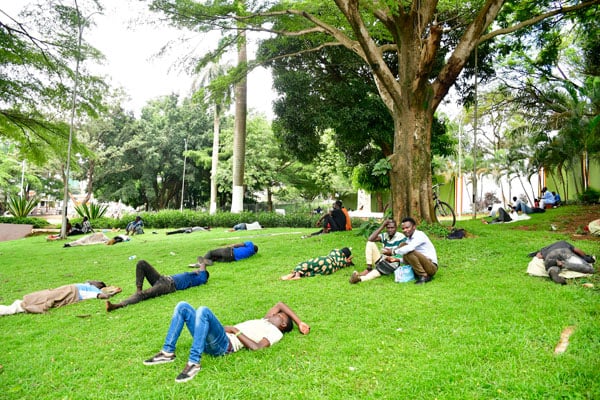Prime
The minimum wage: Pending question

Uganda's legal tender. PHOTO/FILE/COURTESY
What you need to know:
- Unions, employers and other experts have on several occasions appealed to Mr Museveni to assent to the Bill, which request he has repeatedly declined.
Top labour union leaders have blamed President Museveni for refusing to sign the Minimum Wage Bill, 2015, which they say would have resolved the current contentious issue of salary disparities among public servants.
Mr John Oketcho Siel, the chairperson of the Central Organisation of Free Trade Unions Uganda (Coftu), yesterday said it is unfortunate that the country is witnessing a series of avoidable gruesome incidents.
Mr Oketcho’s reference was to the shock shooting to death junior Labour minister, Col (rtd) Charles Okello Engola, by his military bodyguard on May 2, and last Friday’s killing of city money lender Uttam Bhandari by a police officer.
In both killings, stress partly caused by financial distress came up as a possible explanation for the killings.
“We have pushed for the minimum wage Bill over the years but we are not getting a clear explanation from the government. We don’t know why the President has kept on declining to sign the Bill,” Mr Oketcho said.
Mr Usher Wilson Owere, the former chairperson general of the National Organisation of Trade Unions (Notu), told Monitor that a law on minimum wage will restore sanity in Uganda’s employment sector.
“The weakness in managing government employees has led to what we are seeing now. The Ministry of Labour should be merged with the Ministry of Public Service to manage labour issues in the country,” he said, adding: “We need a well-defined structure where labour administration is strengthened, making sure [both ministries] are directly monitoring issues concerning workers,” he said.
“Most of the incidents you see today are in the government sector because they discouraged labour unionisation. We need a collective structure that will protect workers,” he said.
The Bill was passed by Parliament in February 2019, with the aim of setting up a minimum wage determination mechanism for each sector.
President Museveni, in August 2019, however, declined to assent to the Bill, stating that the current law was sufficient.
Mr Museveni told then Speaker Rebecca Kadaga that: “Having received advice from the Attorney General… I hereby refuse to assent to the Bill… There are no gaps in the Minimum Wages Advisory Board and Wages Council Act that the Bill seeks to cure,” he wrote in reply.
The President also directed the Ministry of Gender, Labour and Social Development to review a report on the implications of fixing a minimum wage for investment and the economy.
Mr Museveni has long argued that fixing a minimum wage could hurt Uganda’s efforts at attracting foreign direct investment, thereby negatively affecting the economy.
“The said report was prepared by the Minimum Wages Advisory Board and Cabinet still awaits the report from the ministry so as to make an informed decision,” he stated in his letter.
Unions, employers and other experts have on several occasions appealed to Mr Museveni to assent to the Bill, which request he has repeatedly declined.




